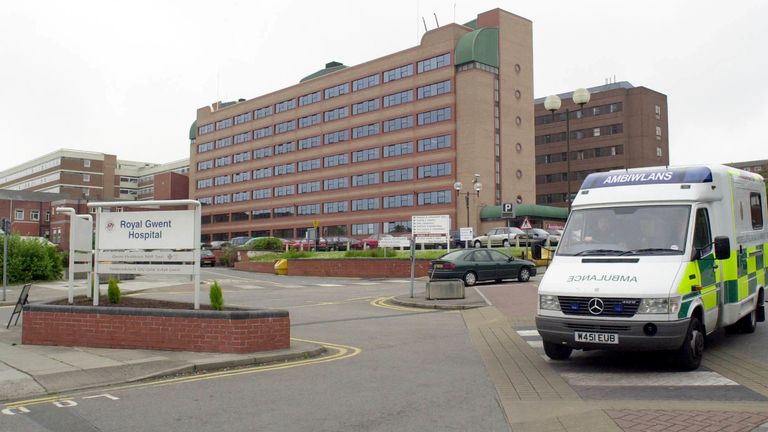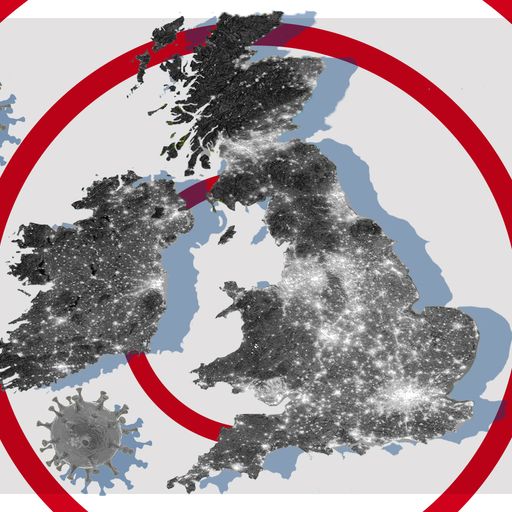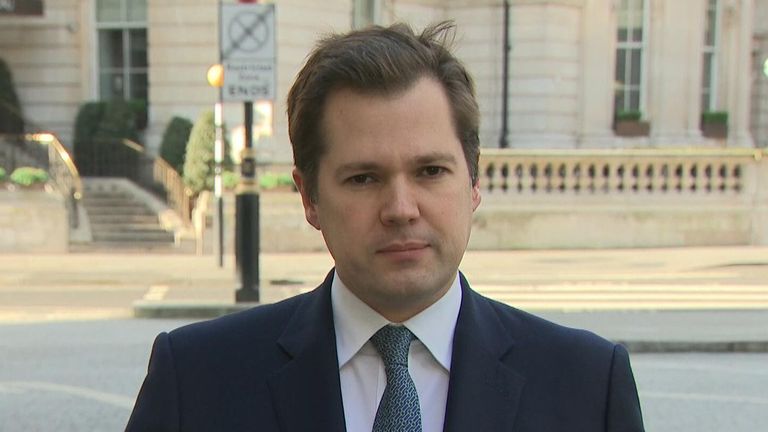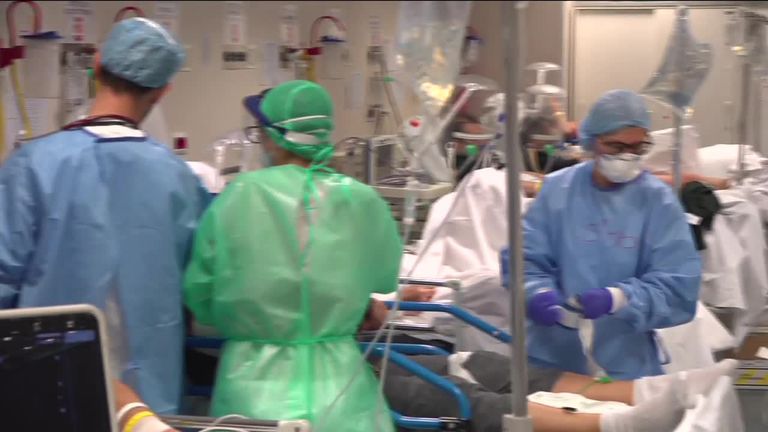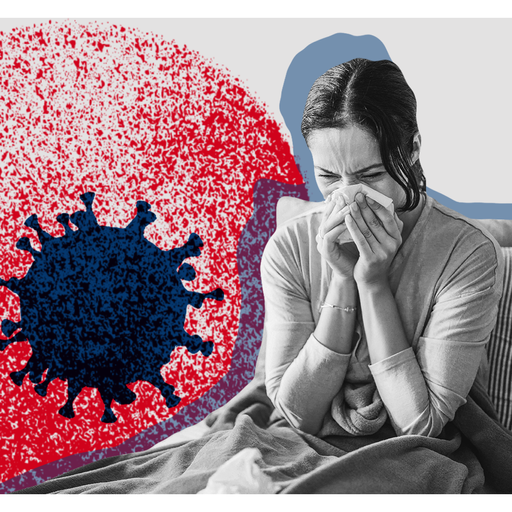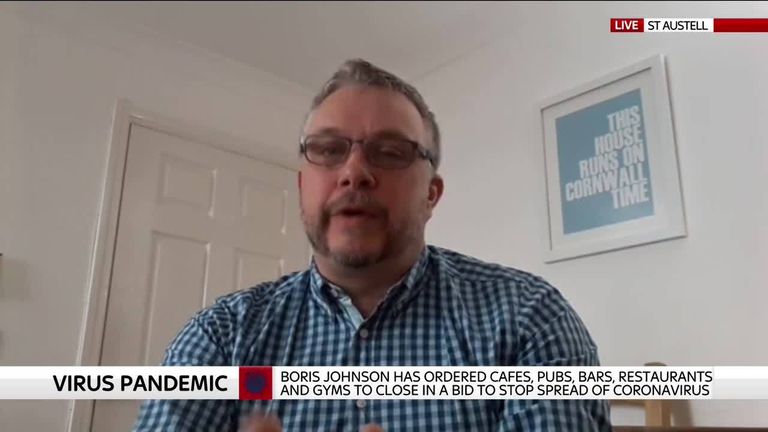Coronavirus: 11 more deaths take UK total to 244
The number of fatalities grows as the government refuses to rule out more stringent action to curb the outbreak's spread.
Sunday 22 March 2020 17:06, UK
Eleven more people have died after testing positive for coronavirus in Wales, Scotland and Northern Ireland - taking the UK total to 244.
There have been seven fatalities in Wales over the last 24 hours, taking its total to 12 and a further three in Scotland, where the number of deaths overall now stands at 10.
Meanwhile, an elderly patient with an underlying medical condition has become the second person to die in Northern Ireland after testing positive for coronavirus.
An update on confirmed coronavirus cases and casualties for England is expected later.
Health officials said another 71 people had tested positive for coronavirus in Wales, bringing the total number of confirmed cases to 347.
In Scotland, 416 have now tested positive for the virus.
The chief medical officer for Wales Dr Frank Atherton, said: "It is with deep sadness I can confirm a further seven deaths of patients in Wales who tested positive for coronavirus (COVID-19).
"This takes the number of deaths in Wales to 12."
He added: "My thoughts are with their families and friends, and I ask that their privacy is respected at this very sad time."
The Welsh government said five people had died in the Royal Gwent Hospital, Newport, one in Nevill Hall, Abergavenny, and one in Prince Charles Hospital, Merthyr Tydfil.
All were in the high-risk category, either over 70 or with underlying health conditions, according to the authorities.
London continues to account for more than a third of all UK deaths - an increase of 19 on Saturday, eight of which were at the London North West Healthcare NHS Trust.
The capital has seen 90 fatalities, followed by 42 in the South East, 32 in the West Midlands, 19 in the North West, 12 in the South West, nine in the East Midlands, eight in Yorkshire and the Humber and four in the North East.
There are now more than 300,000 confirmed cases worldwide, according to a running tally by Johns Hopkins University.
There have also been about 13,000 deaths globally.
Housing Secretary Robert Jenrick has refused to rule out a UK lockdown if the public ignores advice aimed at curbing the spread of COVID-19 and ease pressure on the NHS, warning that it "isn't a game".
:: Listen to the Daily podcast on Apple Podcasts, Google Podcasts, Spotify, Spreaker
Labour leader Jeremy Corbyn, also appearing on Sky's Sophy Ridge on Sunday, argued that a decade of austerity had left society "a bit vulnerable".
It came after Boris Johnson told people that the best present they could give their mother for Mother's Day was to stay away and so avoid the risk of them catching the infection.
The prime minister warned that unless there was a national collective effort, the NHS would be overwhelmed like the health service in Italy, which has been hard-hit by the pandemic.
The government and health officials have also urged the 1.5 million people in England considered most at risk from COVID-19 - the disease caused by coronavirus - because of their health conditions to begin "shielding" themselves by staying at home.
Letters will go out this week "strongly advising" them not to go out for at least 12 weeks from Monday.
Elsewhere, there has been criticism of people travelling to the countryside to avoid the outbreak.
There are concerns about an influx of people into rural communities, putting even greater pressure on local health and social care services.
